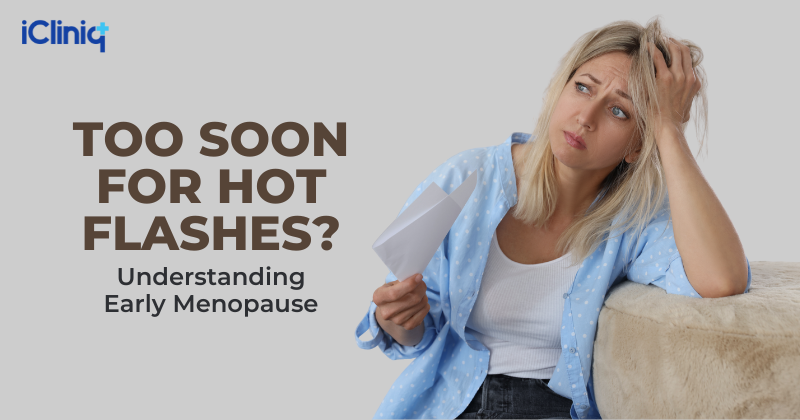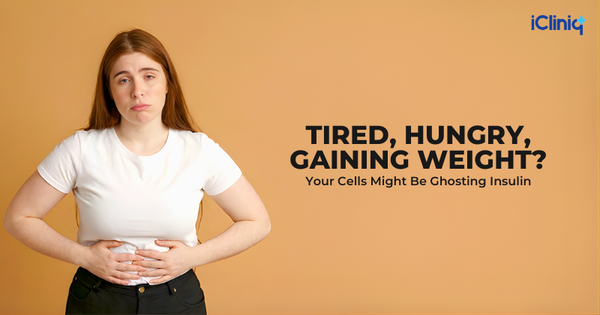Too Soon for Hot Flashes? Understanding Early Menopause

Women often view menopause as a midlife milestone, but what if symptoms begin before midlife? Early menopause, or premature ovarian insufficiency (POI), is any time before the age of 45. Some of the contributing factors include lifestyle habits, environmental toxicants, and stress, the silent accelerators.
Recognizing these underlying factors and understanding what they are can help women defend their hormonal health and get their bodies ready for their future wellness.
What Is Early Menopause Really About?
Early menopause occurs when the ovaries cease hormone production earlier than expected. It is not merely the cessation of periods. Early menopause affects bone health, fertility, and emotional stability. Some research indicates that air pollution, along with chronic stress, can promote early ovarian aging and make it imperative to recognize it early and receive preventative care.
Hidden Triggers Outside of Age and Genetics
Besides family background, researchers suspect that long-term sleep deprivation, endocrine disruptors in plastics, or extreme exercise regimes can lower estrogen levels, contributing to early menopause. These exposures are often subtle and can disrupt your hormonal clock, resulting in early menopause.
The Signs You Don't Notice Until It's Too Late
Early menopause is likely not going to be announced by hot flashes first. Unexplained anxiety, a disrupted sleep cycle, and food cravings can be the earliest signs. Tracking all these subtle hormonal shifts will allow women to seek help for their symptoms long before things like bone density and heart health begin to decline.
Nutritional Strategies to Postpone Early Menopause
Your nutritional choices are connected to your hormones through multiple mechanisms. For example, foods high in nutrients, such as flaxseeds, berries, nuts, and other soy foods, will help your body keep its natural estrogen levels in check. Reducing caffeine, sugar, and processed foods is likewise vital for proper ovarian function.
Menopause: Transition to Health vs. Deterioration of Health
Think of menopause not as the end. Think of it as a reset or a transition to how you want to feel moving forward. When women have early insight about what their menopausal transition will be like, they can move into the stage with confidence.
Early menopause doesn't mean you're going to suffer throughout your life. With the rgiht knowledge and awareness, you can always take charge of your health.





